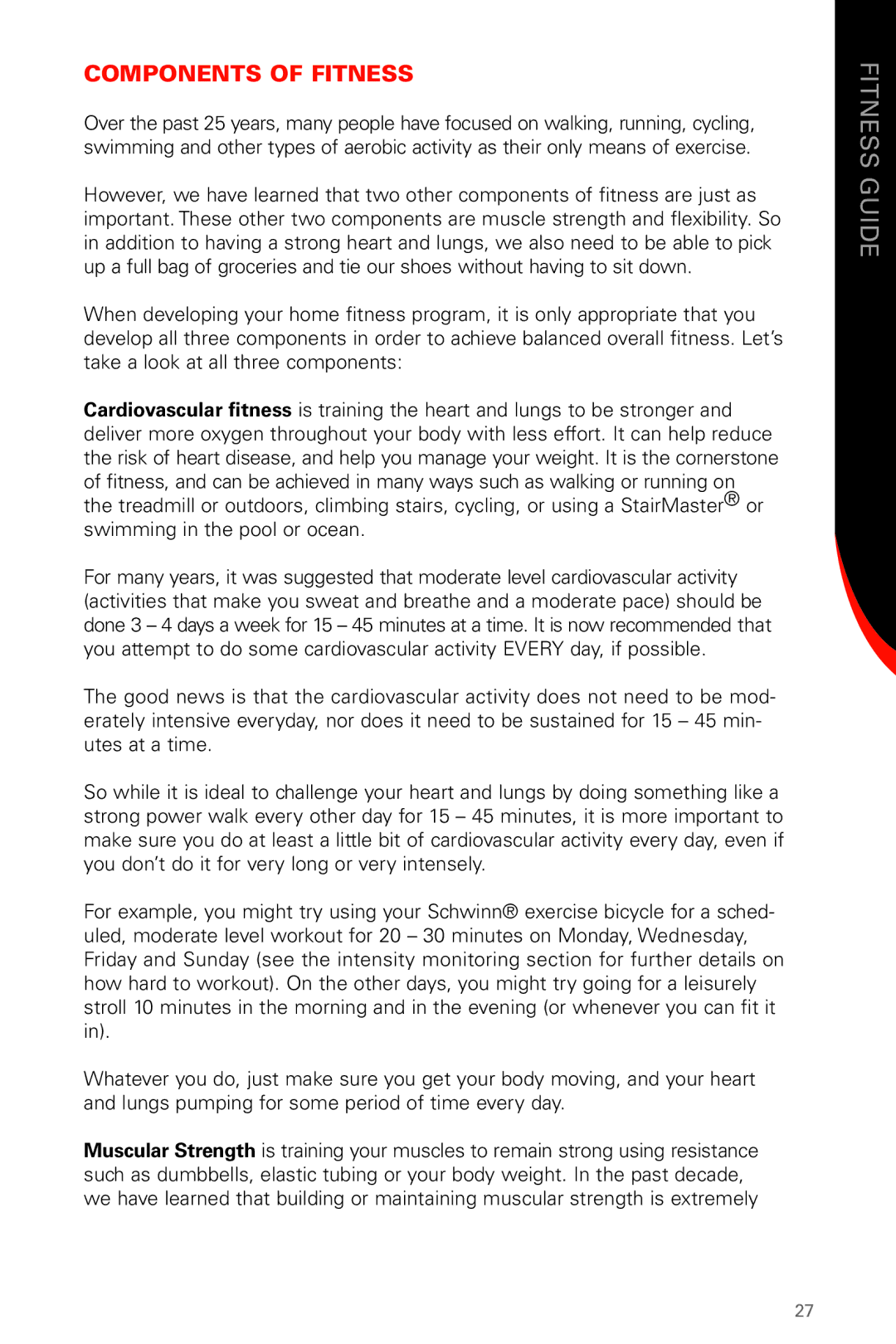COMPONENTS OF FITNESS
Over the past 25 years, many people have focused on walking, running, cycling, swimming and other types of aerobic activity as their only means of exercise.
However, we have learned that two other components of fitness are just as important. These other two components are muscle strength and flexibility. So in addition to having a strong heart and lungs, we also need to be able to pick up a full bag of groceries and tie our shoes without having to sit down.
When developing your home fitness program, it is only appropriate that you develop all three components in order to achieve balanced overall fitness. Let’s take a look at all three components:
Cardiovascular fitness is training the heart and lungs to be stronger and deliver more oxygen throughout your body with less effort. It can help reduce the risk of heart disease, and help you manage your weight. It is the cornerstone of fitness, and can be achieved in many ways such as walking or running on the treadmill or outdoors, climbing stairs, cycling, or using a StairMaster® or swimming in the pool or ocean.
For many years, it was suggested that moderate level cardiovascular activity (activities that make you sweat and breathe and a moderate pace) should be done 3 – 4 days a week for 15 – 45 minutes at a time. It is now recommended that you attempt to do some cardiovascular activity EVERY day, if possible.
The good news is that the cardiovascular activity does not need to be mod- erately intensive everyday, nor does it need to be sustained for 15 – 45 min- utes at a time.
So while it is ideal to challenge your heart and lungs by doing something like a strong power walk every other day for 15 – 45 minutes, it is more important to make sure you do at least a little bit of cardiovascular activity every day, even if you don’t do it for very long or very intensely.
For example, you might try using your Schwinn® exercise bicycle for a sched- uled, moderate level workout for 20 – 30 minutes on Monday, Wednesday, Friday and Sunday (see the intensity monitoring section for further details on how hard to workout). On the other days, you might try going for a leisurely stroll 10 minutes in the morning and in the evening (or whenever you can fit it in).
Whatever you do, just make sure you get your body moving, and your heart and lungs pumping for some period of time every day.
Muscular Strength is training your muscles to remain strong using resistance such as dumbbells, elastic tubing or your body weight. In the past decade, we have learned that building or maintaining muscular strength is extremely
FITNESS GUIDE
27
